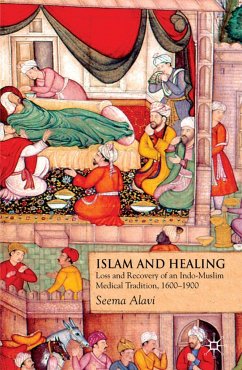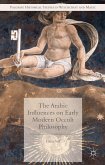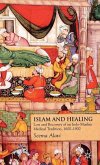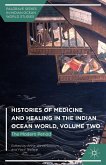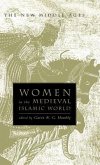This book traces the Islamic healing tradition's interaction with Indian society and politics as they evolved in tandem from 1600 to 1900, and demonstrates how an in-house struggle for hegemony can be as potent as external power in defining medical, social and national modernity. This is a pioneering work on the social and medical history of Indian Islam.
'...a major contribution to our understanding of colonialism, and indigenous reactions.' Metascience
' The book is very informative [and] what imparts emotion to Alevi's scholarship is her obvious commitment to the fate of this descendant of ancient medicine.' The international Journal of Asian Studies
' The book is very informative [and] what imparts emotion to Alevi's scholarship is her obvious commitment to the fate of this descendant of ancient medicine.' The international Journal of Asian Studies

